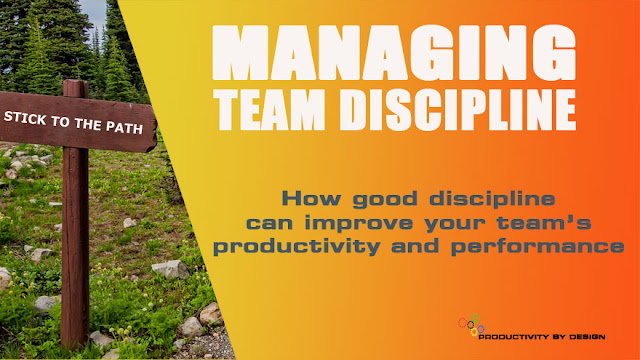Maintaining team discipline is a cornerstone of effective leadership.
A disciplined workforce enhances productivity and fosters a positive work environment.
However, it's a complex task that requires a delicate balance of firm leadership and empathetic understanding.
- The Impact of Poor Discipline
- Common Disciplinary Issues in the Workplace
- Strategies for Maintaining Discipline
- Dealing with Performance Issues
- Addressing Behavioural Issues
- The Role of Leadership in Maintaining Discipline
The Impact of Poor Discipline
A lack of discipline can have far-reaching consequences for an organization:
- Decreased Productivity: A disorganized and undisciplined team often needs help to meet deadlines and achieve goals.
- Reduced Morale: Poor behaviour can create a toxic work environment, leading to low morale and high turnover.
- Damaged Reputation: A company with a reputation for poor discipline may need help to attract and retain top talent.
- Legal Issues: Failure to address disciplinary issues promptly and fairly can lead to legal action.
Common Disciplinary Issues in the Workplace
Performance Issues:
- Consistent underperformance
- Failure to meet deadlines
- Poor quality of work
- Lack of initiative
Behavioural Issues:
- Absenteeism and tardiness
- Disrespectful behaviour towards colleagues or supervisors
- Workplace harassment or bullying
- Violation of company policies and procedures
Strategies for Maintaining Discipline
Clear Expectations:
- Develop clear and concise performance expectations for each role.
- Communicate these expectations clearly to all employees.
- Use performance management tools to track progress and identify areas for improvement.
Effective Communication:
- Establish open and honest communication channels.
- Encourage regular feedback and address concerns promptly.
- Use active listening techniques to understand employee perspectives.
Fair and Consistent Discipline:
- Develop a fair and consistent disciplinary process.
- Document all disciplinary actions and ensure they are applied equitably.
- Avoid impulsive decisions and take the time to gather all the facts.
Positive Reinforcement:
- Recognize and reward positive behaviour.
- Celebrate achievements, both individual and team-based.
- Create a positive work environment that fosters motivation and engagement.
Training and Development:
- Invest in employee training and development programs.
- Provide opportunities for growth and advancement.
- Equip employees with the skills and knowledge they need to succeed.
Dealing with Performance Issues
Identify the Root Cause:
- Conduct a thorough investigation to determine the underlying reasons for poor performance.
- Consider factors such as lack of training, insufficient resources, or personal issues.
Provide Constructive Feedback:
- Schedule a private meeting to discuss the performance issue.
- Focus on specific behaviours and provide actionable feedback.
- Set clear expectations and a timeline for improvement.
Offer Support and Guidance:
- Provide additional training or mentoring, if necessary.
- Offer assistance with time management or other relevant skills.
- Monitor progress closely and provide regular feedback.
Implement Corrective Action:
- If performance does not improve, take appropriate disciplinary action.
- Document all steps taken and ensure fairness and consistency.
Addressing Behavioral Issues
Document the Incident:
- Gather all relevant information, including witness statements and any physical evidence.
- Document the incident in detail, including the date, time, and location.
Investigate the Incident:
- Conduct a thorough investigation to determine the facts.
- Interview all parties involved and review any relevant documentation.
Take Disciplinary Action:
- If the employee is found to be at fault, take appropriate disciplinary action.
- The severity of the punishment should be proportionate to the offence.
Provide Counseling or Training:
- If the behaviour is due to a personal issue or lack of training, provide counselling or training to address the root cause.
The Role of Leadership in Maintaining Discipline
Effective leadership is essential for maintaining a disciplined workforce. Leaders must:
- Lead by Example: Demonstrate the desired behaviours and attitudes.
- Communicate Effectively: Clearly articulate expectations and provide regular feedback.
- Empower Employees: Delegate authority and provide growth opportunities.
- Foster a Positive Work Environment: Create a culture of respect, trust, and collaboration.
- Hold Employees Accountable: Enforce rules and consequences consistently and fairly.
By following these strategies, leaders can create a disciplined and productive workforce that drives organizational success.
Remember, a disciplined team is a motivated team, and a motivated team is a winning team.






0 Comments